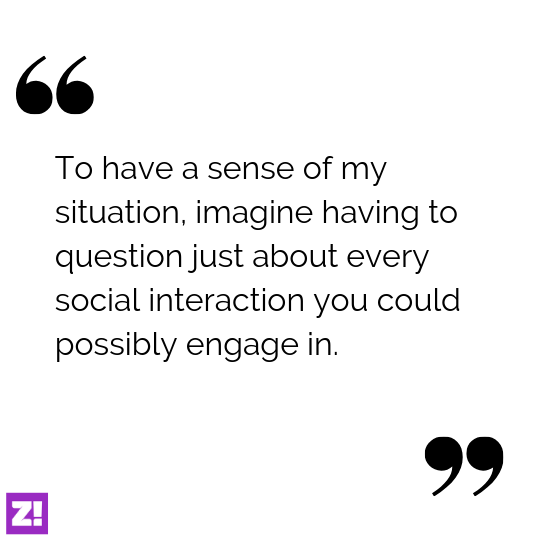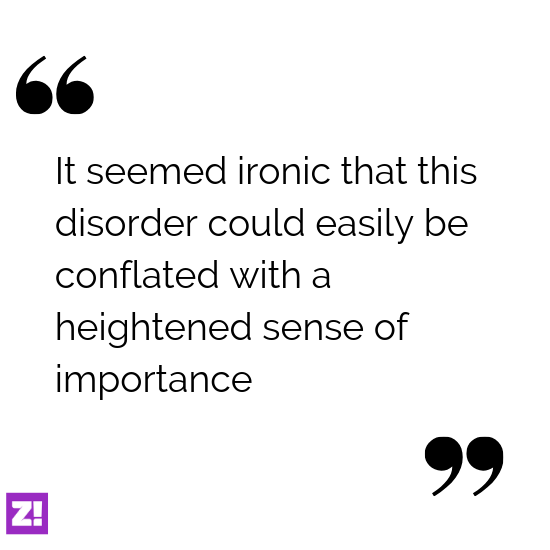
To get a better understanding of Nigerian life, we started a series called ‘Compatriots’, detailing the everyday life of the average Nigerian. As a weekly column, a new installment will drop every Tuesday, exploring some other aspect of the Nigerian landscape.
This week, we got in touch with a woman who has struggled with mental health almost all of her life. She narrates her ordeal with anxiety and the steps she’s taking to overcome her illness.
I have this fun memory. It’s from 2013, when I was in my second year in university.
It was past 1 am. I had just ended a call and was standing directly outside my hostel – a 4 man room aberration, which instead housed an additional 12 limbs. I was on perhaps my second plot at making a return to my room.
At my first go, knowing most of my roommates were awake, I practised engaging the nicest in conversation as soon as I made my re-entry. Perhaps I would inquire as to why she remained awake and what time her first class of the day was to hold as I made my way to my bed.
On the second try, I toyed with the idea of a stoic re-entry — making a solemn climb to my top-bunk, leaving them to wonder what manner of news I had just received.
At the third iteration, I would simply walk back in, say a jolly goodnight and make my way to bed.
Rehearsing the third plot a second time for good measure, I turned the door handle and made my way into a room filled with girls, almost immorally huddled together. They were too lost in conversation to notice the fidgety roommate who threw a practiced “goodnight” their way, before sauntering off to bed.

You see in 2013, my anxiety had gotten so complex, I couldn’t for the life of me, pick a telephone call or make a casual re-entry into a room without first, second and third guessing myself.
And this was only my reaction to telephone calls.
When I was younger. I was a professional worrywart. I had an inexhaustible list of fears: masquerades, dogs without leashes, naked flames and all costumed cast members of “Tales by Moonlight” to name a few. As I got older these fears went from strictly concrete worries to increasingly versatile sources of consternation.
By secondary school, I had become one of those children whose descriptors usually circled around ‘strange’. I had bad luck making friends and routinely broke out in a sweat when asked questions in class. One time, I infamously froze when directed to address an assembly of my peers, and while this may sound dramatic, I’m sure I saw the face of death at the turn of every examination.

At the time, beyond a popular hymn
When I made the leap to university, my anxiety had grown, seemingly overnight from an almost understanding juvenile nuisance, to an ugly, three-headed and gnarled thing lurking in the shadows, waiting on any moment, opportune or otherwise to make an appearance.

To have a sense of my situation, imagine having to question just about every social interaction you possibly engage in: getting into a bus convinced the passengers hate you, having to rehearse a speech before making purchases at the market, dissolving into steam at the thought of giving a presentation, etc., then you might have a faint idea of how my time in university went and how the world currently plays out for me.
Following my hostel re-entry incident, I began to wonder if there wasn’t more to my years of incessant worry. When I came across Social Anxiety Disorder (SAD) — a result produced from an internet search of my symptoms — I approached the diagnosis with the trepidation of a cold-sufferer, Google-diagnosed with cancer. Could I really have a mental health issue?
“Social anxiety disorder or social anxiety is an excessive emotional discomfort, fear, or worry about social situations.” It went on to list its symptoms, from which I had my pick.
Yes, I had an excessive fear of embarrassment. Therein lay the real reason I woke at 4 am to clean up in the hostel bathroom, and not the supposed state of cleanliness of the bathroom as I liked to claim.
And correct, I avoided situations where I could be the centre of attention, if my illogical avoidance of the Engineering faculty walkway was anything to go by. But it seemed all too generic, indicative of mere timidity and not what could potentially be a mental health condition.

It just seemed ironic that this disorder could easily be conflated with a heightened sense of importance. After all, it angles on an individual believing themselves the center of attention, a position I would have given away tax free.
But even my doubt couldn’t explain away my sweaty palms when carrying out trivial things like ordering food at a crowded restaurant, or my most extreme reaction till date — a one-week anxiety fueled bender, where I lost almost 2 kg in weight, complete with panic attacks and spontaneous tears, brought on by the fear of failing a final year exam for which I was prepared.
Or somehow never being able to hold on to relationships and maintaining solitary, indoor weekends, public holidays and sick days with the fervency of the devout.
It’s been years since I accepted my SAD diagnosis, triple confirmed through a series of tests and a consultation. While self-help in the form of assertiveness, breathing exercises and step-by-step planning have been my key tools in managing the disorder; a little divine help has come in from time to time, to manage its management in the giant of Africa, Nigeria.
Here, I’ve had to forego sick days on account of anxiety attacks for fear of being labelled the office-crazy, a tag I’ve tried my hardest to avoid in a still mentally closeted country. Or having to every couple of months, remind your family that you cannot — no matter what apostle says — pray away the disorder.

I wish I could say my anxiety was in the past, that I’m now cured and do not consider retreating to a hermit life every fortnight, but I’m learning that it’s okay sometimes to admit that there’s something wrong or to reach out and ask for help. It’s a step-by-step process and I’m okay with that.




